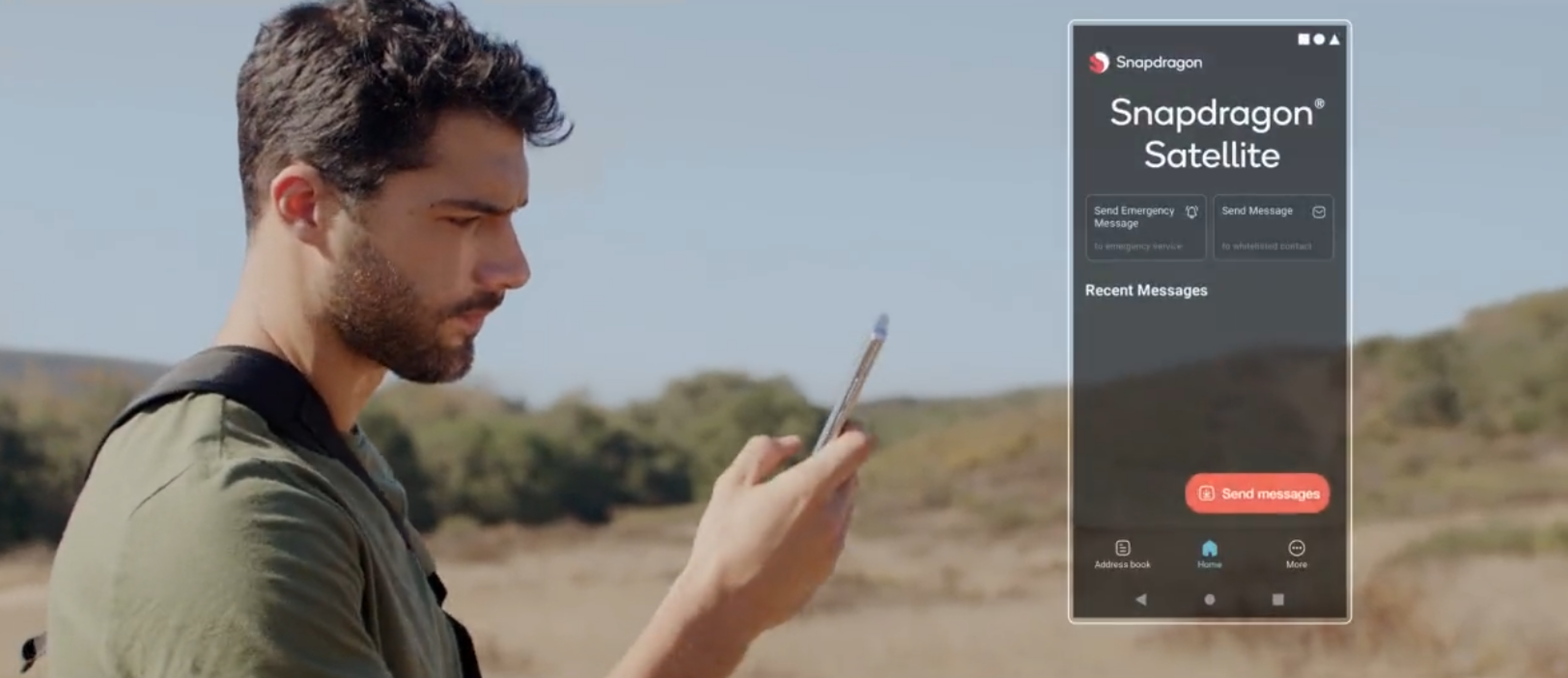Bad news for those who were hoping to use an Android phone in the middle of nowhere. Satellite calls and messages won’t be coming to the little green robot’s OS any time soon.
Launched at the end of 2022 with the release of the iPhone 14, the satellite emergency message service designed by Apple quickly inspired the Android ecosystem. A few weeks after the arrival of the functionality in France, Qualcomm announced its own satellite communication tool on smartphones: Snapdragon Satellite. 10 months after its announcement, the project is unfortunately already buried.
A stillborn solution
In a press release published on November 9, Iridium, Qualcomm’s partner in the deployment of satellite connectivity on Android, announced that the chipmaker has “ chose to terminate this agreement from December 3, 2023 “. Concretely, this means that no Android mobile will have this option in the near future. Or at least, that no mobile phone will use the satellite solution provided by Qualcomm, which had the advantage of being offered turnkey to manufacturers.
The reason cited by Iridium for stopping the project is quite simple: no manufacturer wanted to join the dance. As the company explains, “ despite demonstrating the effectiveness of the technology, smartphone manufacturers have not integrated the solution into their devices “. The cost of operating such a solution for Qualcomm was therefore not worth it. However, it was rumored that Samsung’s Galaxy S24s were going to include such a feature, after having given up on integrating it on its S23s, but, with the end of the agreement, the chances of seeing this idea come to fruition are slim.
It is not excluded that Samsung deploys its own solution, but the complexity and costs linked to this functionality are such that unfortunately we should not expect much, at least in the near future. The lack of interest from Android manufacturers for such a tool is regrettable and will undoubtedly push adventurers of all kinds to opt for an iPhone rather than an Android mobile.
Hope is not (completely) dead
However, the hope of seeing satellite communication arrive on Android one day is not dead. Iridium explains in fact that it wants “ establish new relationships with equipment manufacturers, […] chipmakers and developers “. For its part, Google is still working on integrating a dedicated API into Android, after having missed the mark for a release in Android 14.
But reaching agreements on a case-by-case basis risks taking time and the withdrawal of Qualcomm, which supplies the vast majority of Android smartphone processors, risks complicating things on the hardware side. You will therefore have to be patient to have functionality that really rivals that of the iPhone.
Source : Iridium

15